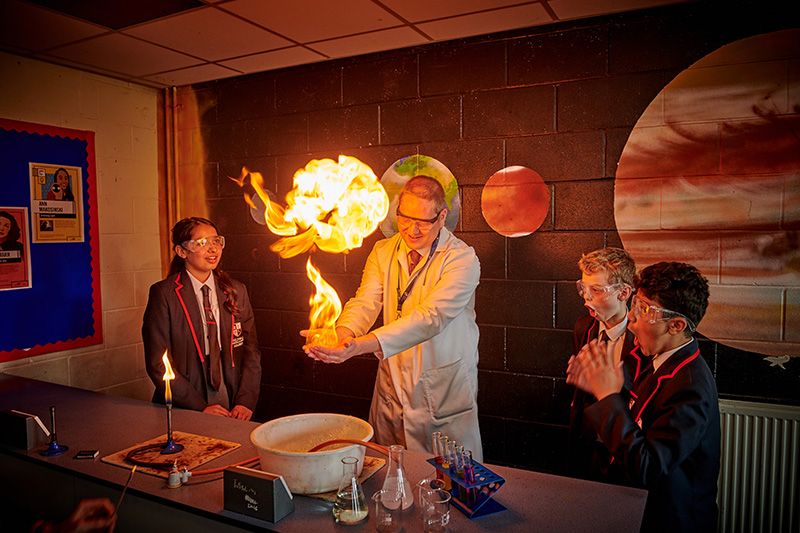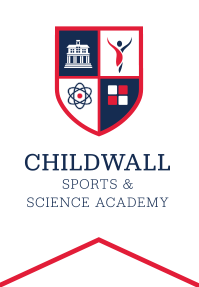Science
Vision
Our aim is to ensure that science is both enjoyable and challenging at all key stages and for students to become evaluative and analytical thinkers. Our subjects allow students to deepen their knowledge with a greater understanding and access to the wider world and how it works. Studying the 3 classical sciences gives all pupils a broad introduction to the many concepts and challenges that the modern world faces. The spectrum of subject specific vocabulary will allow our students to not only understand but communicate effectively in an ever changing employment market. Our curriculum comprises inspiring lessons and investigative practical work to help ensure that all pupils progress within the subject allowing them to master skills required in later life.

Curriculum Intent
- To provide students with the powerful knowledge in Science that will promote social mobility, deepening students’ knowledge and understanding of scientific concepts and vocabulary through consistent teaching approaches supported by evidence.
- To develop students’ curiosity and excitement for science through scientific enquiry and development of practical investigation skills.
- To make use of sophisticated interleaving of knowledge, practical, literacy and numeracy skills in order to allow students across the ability range to revisit and build on prior knowledge which will support them to transfer information into long term memory, improving retention of knowledge and depth of understanding.
- To develop students’ understanding of the importance of science in the world around us.
Implementation
By taking an end-point centred approach to skill development and knowledge acquisition we have taken our KS4 AQA courses and tracked the necessary skills back to a year 7 start point. These skills are then developed in a cumulative manner where students are given the opportunity to demonstrate understanding both practically and in more traditional forms of assessment over the course of their five years of science study.
We teach a 3-year KS3 curriculum to reflect complexity of content, depth of understanding and level of skill development required to offer students the best opportunity for success at GCSE.
A Key Stage 4, each topic area has content which is a minimum requirement for all students with additional, more challenging outcomes for the most able and development points that add real life context to the content taught. Our KS4 courses include AQA separate sciences in physics, chemistry and biology, as well as combined science trilogy. Both courses enable students to access both higher and foundation tiers of level 2 science qualification and provides a direct route onto the KS5 suite of courses.
We are mapping opportunities for the development of Cultural Capital and careers information advice and guidance against our new curriculum map.
We have a current focus on literacy, particularly key words in Science. New schemes of learning will outline new vocabulary that is introduced to students and students will be explicitly taught the new terminology including its etymology and morphology where appropriate. We also ensure that lessons are rich in opportunities for extended writing, calculations and recall. These opportunities will be explicit in newly developed Schemes of Learning.
Curriculum Overview
Learning Journey
Be Ambitious
Ambitious activities are those that take your regular curriculum further. They take the subjects you study in the classroom beyond that which your teacher has taught you or what you’ve done for home learning. For example, you may go into more depth on something you picked up in the classroom or learn about a new topic altogether. These activities are normally in the form of extra reading, but they can take many other forms, like watching videos online, downloading podcasts, attending lectures, visiting museums or entering academic competitions.
In the future, employers or universities will be interested to hear about what ambitious activities you have engaged in; they will be interested in what you have learnt and impressed by your efforts. Click here for further details



